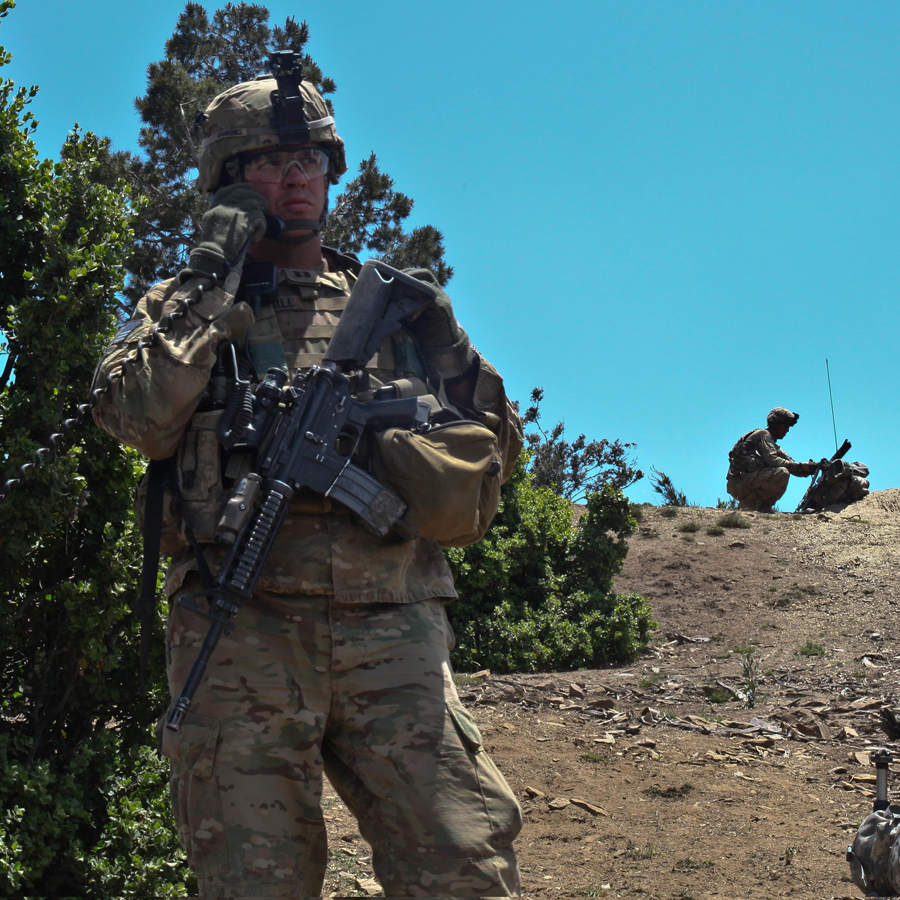DARPA seeks more robust military wireless networks
March 20, 2013

U.S. Army Capt. Edwin Churchill, left, the commander of Delta Company, 2nd Battalion, 506th Infantry Regiment, 4th Brigade Combat Team, 101st Airborne Division, makes a radio call while Cpl. Gary Coleman sets up communication equipment on a hilltop during Operation Oqab Behar VI, in Paktika province, Afghanistan, May 14, 2011. The operation is intended to improve security along the Afghanistan-Pakistan border. (U.S. Army photo by Spc. George Hunt/Released)
DARPA has created the Wireless Network Defense program, which aims to develop new protocols that enable military wireless networks to remain operational despite inadvertent misconfigurations or malicious compromise of individual nodes.
“Current security efforts focus on individual radios or nodes, rather than the network, so a single misconfigured or compromised radio could debilitate an entire network,” said Wayne Phoel, DARPA program manager.
“We need to change how we control wireless networks by developing a network-based solution for current and future systems that acknowledges there will be bad nodes and enables the network to operate around them.”
A key objective of the program is to develop protocols that determine the viability and trustworthiness of neighboring nodes and automatically adapt the network to operate through problems.
Similar to a neighborhood watch program — where neighbors know each other and can identify suspicious or unusual behavior on their street — the protocols must help identify unusual activity that may indicate a problem on the network.
Inspiration for addressing these challenges could come from economic and social networks.
“Credit card companies use various indicators for trying to determine if someone has stolen your credit card and is posing as you,” Phoel said. “Unexpected purchase locations, amounts and other factors could raise an alert. Online social sites for buying and selling personal items use seller ratings to help you decide the trustworthiness of someone before you make a purchase.
Similar concepts of reliability estimation and control methods could be applied to wireless military networks by calling out specific areas of the network that may have untrustworthy nodes.”
Wireless Network Defense is specifically not a new waveform or radio program. Phoel seeks solutions that make existing and future wireless networks more robust and resilient to compromise, regardless of specific radio node hardware or software.
DARPA will host a Proposers’ Day on April 1, 2013, in Arlington, Va.
Phoel believes expertise in the following areas may likely contribute to the success of the program: military and commercial wireless network system design and operation, wireless network security protocols, distributed control theory, and economic and social networking structural analysis.